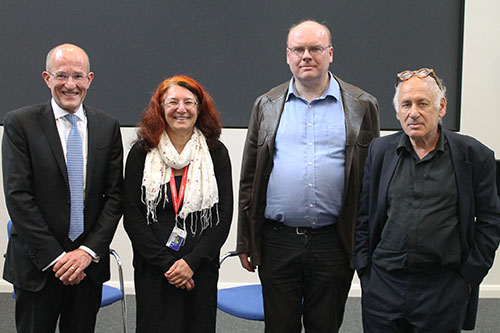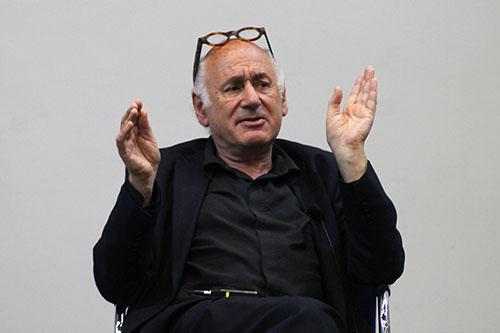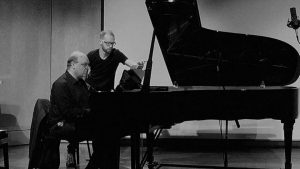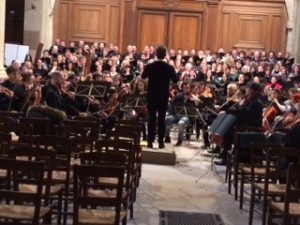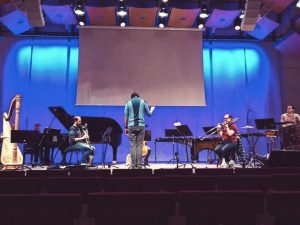From 13th to 15th September 2018, Head of Department Laudan Nooshin attended the Annual Conference of the Royal Musial Association, the largest annual gathering in the UK of those working across the range of music studies, including musicologists, ethnomusicologists, performers, composers, and many more! The conference was hosted by the Music Department at the University of Bristol and held in their building – the Victoria Rooms – built in the 1840s as Assembly Rooms: some of the original drinking bars are still in place and provided an interesting setting for conference sessions!
Laudan presented a paper entitled ‘A Window Onto Other Worlds: Musical Exoticism in Iranian Cinema – The Case of The Lor Girl’, which explored the role of music in processes of constructing and representing ‘otherness’ in early Iranian cinema, focusing on the first Persian-language sound film, The Lor Girl, made in Bombay in 1933.
Laudan also spoke on a panel entitled ‘Decolonising Analysis’, which considered some of the ways in which recent calls to ‘decolonise the academy’ have impacted on the practice of music analysis. In a music studies context, the notion of ‘decolonisation’ is about recognising the ways in which our knowledge is, and has been, shaped by power relations and about challenging the normative centres of privilege and taken for granted assumptions through a diversity of musics and perspectives. Given that we’re all enmeshed in some way in colonial histories that inevitably shape how we think, Laudan asked whether it is in fact possible to decolonise analysis before we decolonise our own minds and bodies, particularly in the context of academic institutions – together with their structural inequalities – that were founded on colonial thinking and funded by the riches of empire. The panel provoked an interesting discussion and the setting of the University of Bristol was particularly appropriate, given that an estimated 85% of the wealth that was used to found the university was derived from slavery. Other panel members were: Chloë Alaghband-Zadeh (University of Manchester), Freya Jarman (University of Liverpool), Byron Dueck (Open University) and Ruard Absaroka (SOAS, University of London).
The conference keynote speakers were: Professor Robert Adlington (University of Huddersfield), presenting the annual Le Huray Lecture: ‘Democracy in Action? Audience Participation as Community Organising’; and Alejandro L. Madrid (Cornell University), who was presented with the prestigious Edward J. Dent Medal and whose lecture was entitled: ‘The Importance of Being from ‘the Other Side’: Music and Border Studies in the 21st Century’.
Next year’s RMA conference will be held from 11th to 13th September, and will be hosted jointly by the Music Department at the University of Manchester and the Royal Northern College of Music.
‘Decolonising Analysis’ Panel
University of Bristol, Victoria Rooms

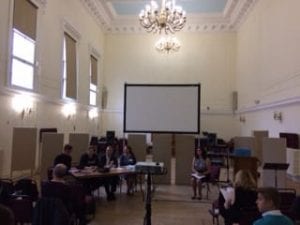


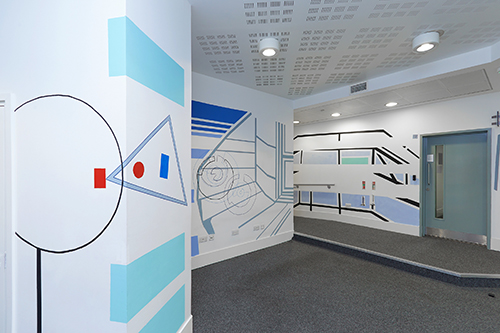
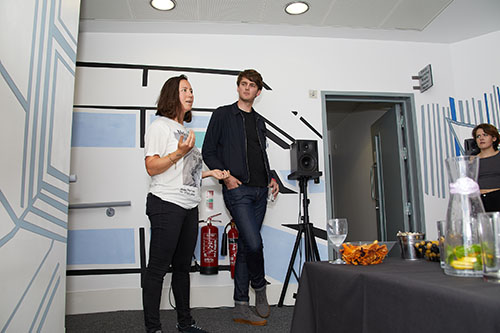
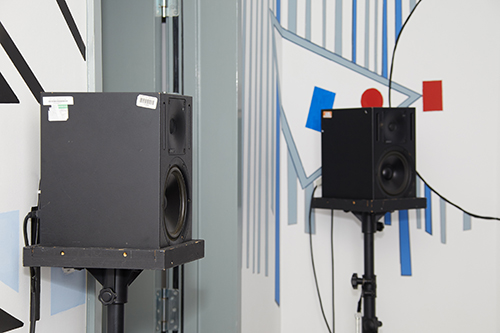 Dr Rennie added: “They also had electro-magnetic equipment that they could use to record sounds from the wires around the department that connect various studio spaces.
Dr Rennie added: “They also had electro-magnetic equipment that they could use to record sounds from the wires around the department that connect various studio spaces.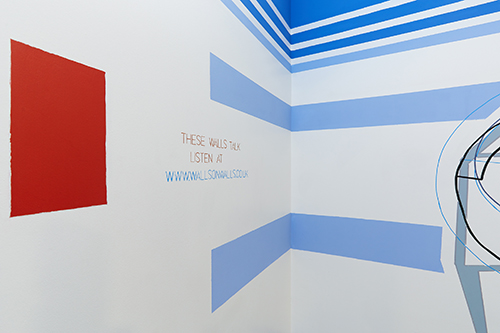 The artwork is now a permanent installation in the Department of Music. It was
The artwork is now a permanent installation in the Department of Music. It was 